試す 金 - 無料
Is the truth still out there?
Australian Geographic Magazine
|January-February 2024
A detailed analysis of more than 1200 sightings suggests the Tasmanian tiger survived until the 1980s, and that there's a slim chance a few are still around.

IN THE AUTUMN of 1982, Tasmania Parks and Wildlife Service (PWS) ranger Hans Naarding was birdwatching near Togari in the state’s far north-west. After a tiring day in the field, he parked his LandCruiser near a crossroads to sleep. At about 2am, with rain thrumming on the thickly forested landscape, something woke him, and he pointed his torch out into the night.
“When I opened the window, the rain just poured in, and I shone the spotlight around at the end of the [torch] beam. Sure enough, it was a thylacine, right in front of the car, ” Hans told The Mercury newspaper, many years later.
Hans’s camera was out of reach, so he instead focused his efforts – and channelled his many years of experience observing wildlife in Africa and Australia – on mentally documenting the encounter, which lasted for about three minutes. He described a full-grown male, 6–7m from the vehicle, which for a period even held his gaze before it slipped off into the inky blackness.
“He was sopping wet…I estimated his weight, counted his stripes on his back, and I could see it was a very healthy male,” Hans recounted to the newspaper.

Given his extensive wildlife experience and expertise as a ranger, his sighting is regarded as one of the most credible of the past 40 years, with the then director of the PWS, Peter Murrell, describing it as “irrefutable and conclusive”. It would lead to a year-long, but ultimately fruitless, search by PWS rangers in the region for any further hints of the presence of the marsupial carnivore.
このストーリーは、Australian Geographic Magazine の January-February 2024 版からのものです。
Magzter GOLD を購読すると、厳選された何千ものプレミアム記事や、10,000 以上の雑誌や新聞にアクセスできます。
すでに購読者ですか? サインイン
Australian Geographic Magazine からのその他のストーリー
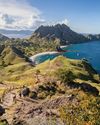
Australian Geographic Magazine
SULAWESI SENSATIONS
There are worlds within worlds and marvels untold waiting to be experienced on Indonesia's remote islands.
9 mins
September-October 2024
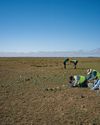
Australian Geographic Magazine
SEARCHING FOR AUSSIE DINOSAURS
Our understanding of where to find ancient life in Australia has been turned on its head by a new appreciation of the country's geology. Now the world is looking to our vast outback as the latest hotspot to locate fossils.
18 mins
September-October 2024
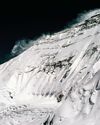
Australian Geographic Magazine
THE HARDEST NIGHT
The first Australian ascent of Mt Everest in 1984 is one of the great feats of mountaineering. Climbed by a small team semi-alpine style, with no bottled oxygen, via the Great (Norton) Couloir, it remains unrepeated 40 years later.
14 mins
September-October 2024
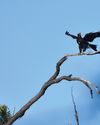
Australian Geographic Magazine
WEDGE-TAILED WONDER
The chance discovery of an eagle nest leads to an extended vigil observing normally hidden behaviours of one of nature's supreme winged marvels.
3 mins
September-October 2024
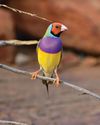
Australian Geographic Magazine
BURDENED BY BEAUTY
Northern Australia's Gouldian finch survives in huge numbers in cages around the world, but its wild population continues to struggle.
4 mins
September-October 2024
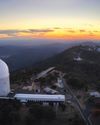
Australian Geographic Magazine
A TELESCOPE FOR A GOLDEN AGE
After a stellar 50 years as one of the country's major scientific assets, the AAT continues to play a major role in keeping Australian astronomy on the world stage.
7 mins
September-October 2024
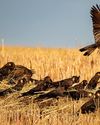
Australian Geographic Magazine
COCKY WHISPERING AT COOMALLO CREEK
This patch of remnant bush on the edge of the West Australian wheatbelt is a place loved by one of Australia's rarest bird species and the man who has studied the site for more than 50 years.
6 mins
September-October 2024

Australian Geographic Magazine
A PIONEERING PAIR
Louisa Atkinson and her mother, Charlotte, were among Australia's earliest authors, and pioneers in women's rights.
9 mins
September-October 2024

Australian Geographic Magazine
THE LONGEST WALK
Lucy Barnard is walking from Argentina to Alaska -the length of the Americas - on an extraordinary journey of endurance and adventure.
6 mins
September-October 2024
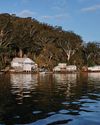
Australian Geographic Magazine
SECLUDED, BUT NOT ALONE
In an era of heightened social isolation, where many of us lead lonely lives, Dangar Island offers the chance to be part of a supportive, connected community.
7 mins
September-October 2024
Translate
Change font size
